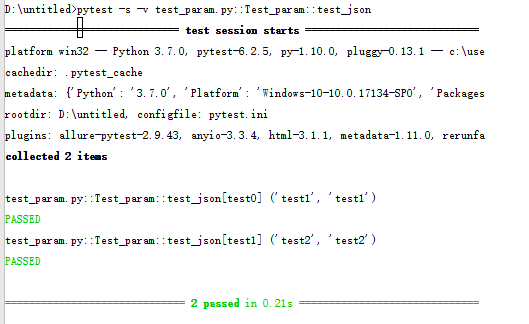pytest-mark 参数化
在类前或用例前用pytest.mark.parametrize ,可进行参数化
传参方式比较灵活,有很多种,下面是列出的几种方式,其他的可自行研究
@pytest.mark.parametrize("参数名",列表)
源码:
:param argnames: A comma-separated string denoting one or more argument names, or a list/tuple of argument strings. :param argvalues: The list of argvalues determines how often a test is invoked with different argument values. If only one argname was specified argvalues is a list of values. If N argnames were specified, argvalues must be a list of N-tuples, where each tuple-element specifies a value for its respective argname.
翻译:
参数名:字符串的形式存在一个或多个参数,用逗号分隔 , 或者用参数字符串的列表或元组
参数:如果是一个,则用list;
如果多个,参数必须以列表中元组的形式,每一个元组对应一组参数值
- 单个参数:
只传单个参数的值即可
@pytest.mark.parametrize("a",["test123456","test2222"]) def test_a(self,a): print(a)
运行结果:
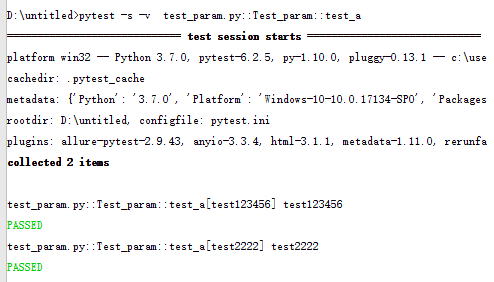
- 多个参数
以元组的形式传入多个参数的值,一个元组代表一组参数的值
例如:第一组a=1,b=2
第二组a=3,b=4
@pytest.mark.parametrize("a,b",[(1,2),(3,4)]) def test_two_param(self,a,b): print(a+b)
运行结果:
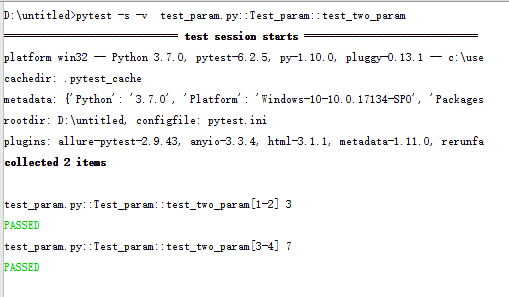
参数名以列表的传入
@pytest.mark.parametrize(["a","b","c"],[(1,2,3),(3,4,7)]) def test_list(self,a,b,c): assert a+b == c print(a+b)
运行结果:
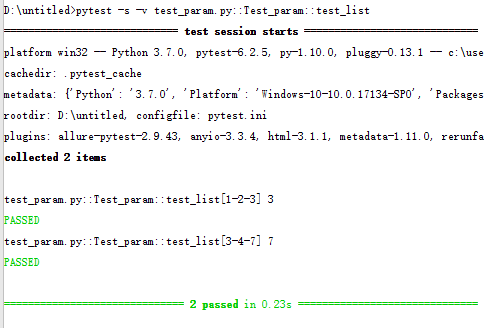
单个多次传入多个参数,排列组合传入
a = (1,2,3) b = (4,5) @pytest.mark.parametrize("test_a",a) @pytest.mark.parametrize("test_b",b) def test_2_param(self,test_a,test_b): print(test_a*test_b)
运行结果
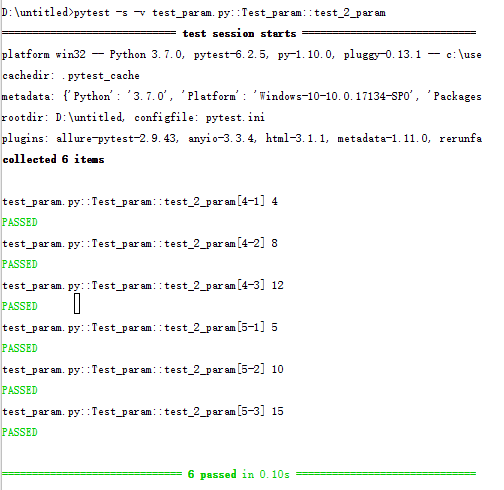
- json格式传入参数
调用时,在名称后面加.items()读取内容
data1 = { "test1":"test1", "test2":"test2" } @pytest.mark.parametrize("test",data1.items()) def test_json(self,test): print(test)
运行结果
